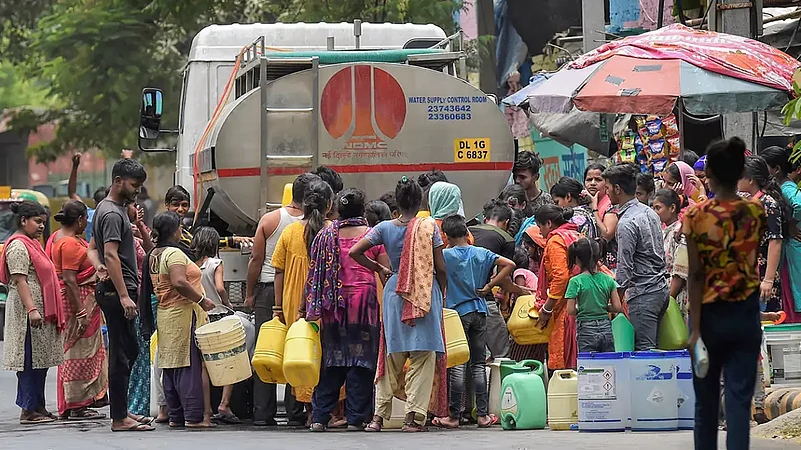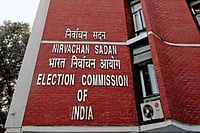Delhi is battling a crisis with the water level in the Yamuna at Wazirabad dropping almost three feet below the desired level due to unbridled illegal sand mining in Haryana and the situation may worsen amid a prediction of extreme heat this year, the city's water utility said on Tuesday.
India logged its warmest February since India Meteorological Department started maintaining records in 1901, with maximum temperatures touching 29.54 degrees Celsius. The India Meteorological Department also said there is an enhanced probability of heat waves between March and May.
"It's just February-March and the situation is similar to what Delhi saw in May last year. It means the problem is going to get worse in the coming months. Authorities have predicted an unprecedented summer this year," Delhi Jal Board's chairman Saurabh Bhardwaj told reporters.
"But the situation at hand is not due to the heat but rampant illegal sand mining in Haryana. The sand mafia has created a series of bunds downstream of Yamunagar and it's blocking the flow of water to Delhi," he said. The water level in the Yamuna is 671.7 feet at present as compared to the desired level of 674.5 feet, he said.
The DJB chairman said the water crisis is not only going to affect the public, but also Parliament, Rashtrapati Bhavan, LG House, CM Office and central and state government departments. "All that we have in the Yamuna now is waste water and effluents from industries. The concentration of chemicals in it is so high that we cannot even clean it," he said.
The drop in Yamuna water level has affected the operations at Wazirabad and Chandrawal treatment plants which cater to the drinking water demands of central and south Delhi. "We will have to divert water from other areas now, which means the problem will affect the entire city," he said. Delhi requires around 1,250 MGD (million gallons a day) of water, while the DJB supplies around 950 MGD. Delhi gets 40 percent of its raw water from the Yamuna.


























